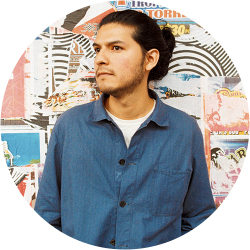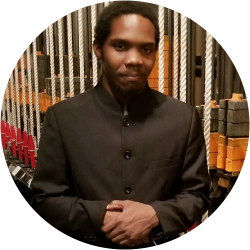210 submissions • 10 finalists
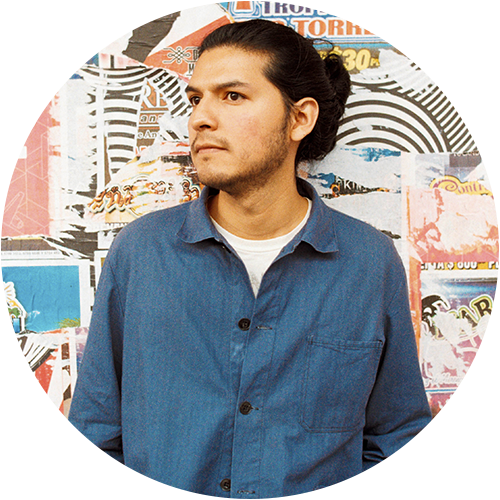
GRAND PRIZE
Rodrigo Martínez
Cumbia Moderna
Mexico City, Mexico
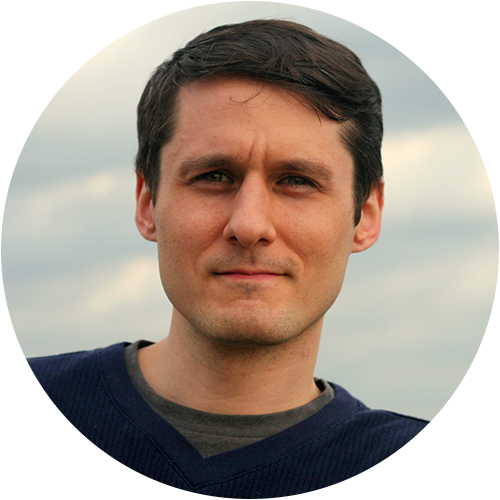
SECOND PRIZE
Keane Southard
The Dove in the Ash Grove
Rochester, NY
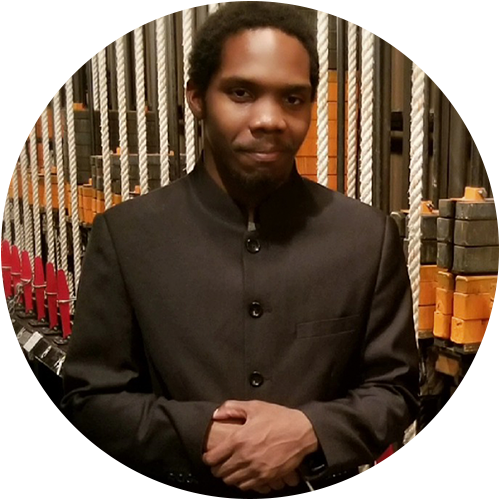
SPECIAL SELECTION
Quinn Mason
Journey's III
Dallas, TX
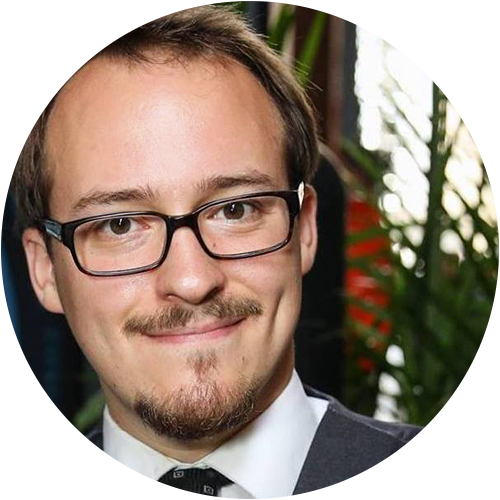
JUDGE'S PRIZE
Neal Endicott
Millenial Sketches
East Lansing, MI
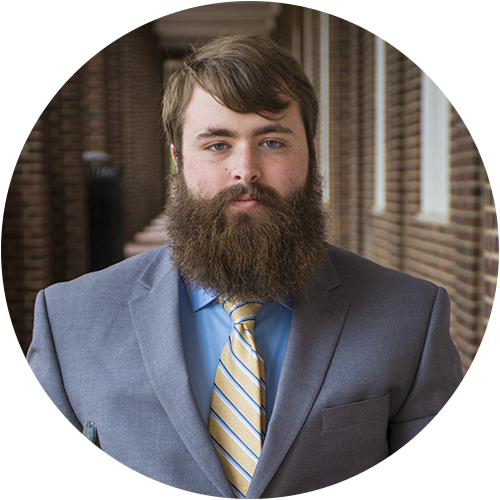
JUDGE'S PRIZE
Dalton Regnier
The Great Stone Face
Gainesville, FL
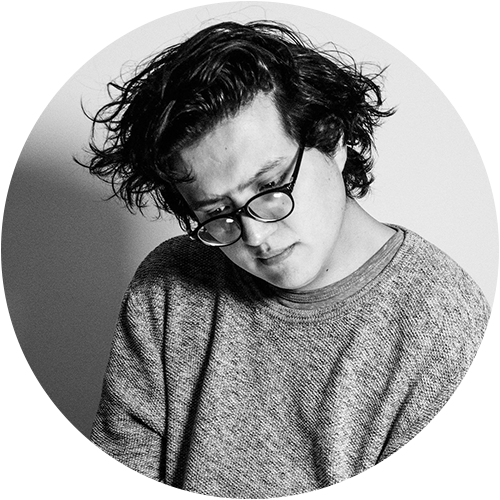
FINALIST
Eduardo Aguilar
Cerro y Nube
Oaxaca, Mexico
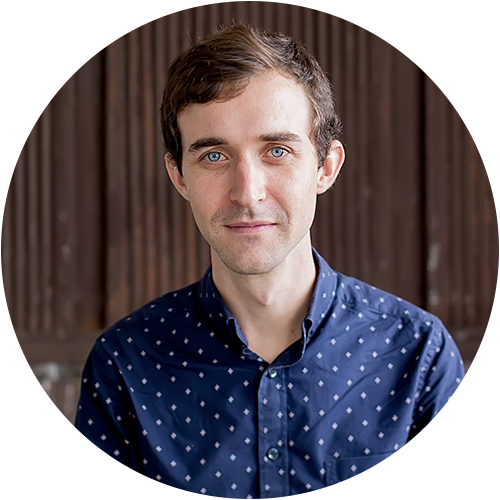
FINALIST
Theo Chandler
Eclipse
Houston, TX
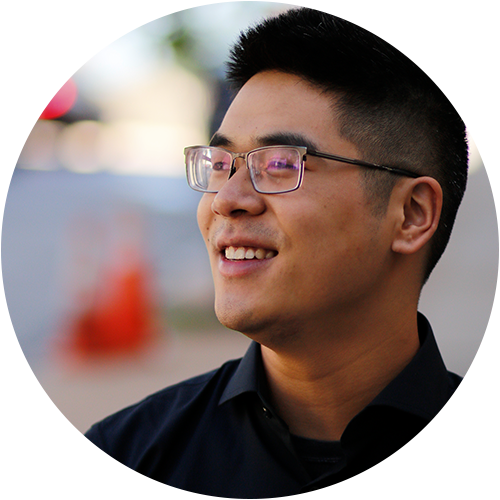
FINALIST
Bobby Ge
Bounce
Baltimore, MD
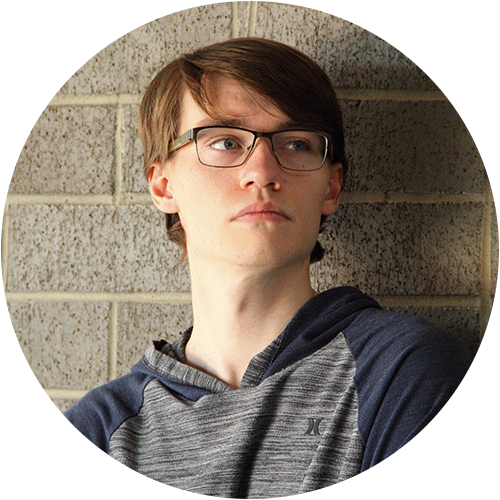
FINALIST
Tray Guess
… but for a moment
Boulder, CO
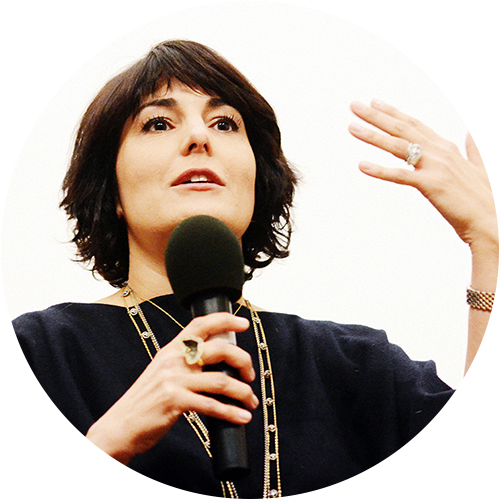
FINALIST
Leanna Primiani
Glass Ceiling
Los Angeles, CA
Rodrigo Martínez
Rodrigo Martínez Torres is a composer interested in the abstraction of the musical language of Latin America as a tool for new creations. He is also a multi instrumentalist who performs in different genres and styles. He was born in Mexico City in 1992. He studied music composition in Academia de Arte de Florencia and in Núcleo Integral de Composición.
He was a grant holder in the mexican program Jóvenes Creadores by FONCA in 2018-2019. And last october he was awarded a MacDowell Colony fellowship (New Hampshire, USA).
He won the 2017 Arturo Márquez composition competition with his piece "Mambo Urbano", for chamber orchestra. With "Radio Ruido" he won the 2017 Caja de Viento Call for Scores, by german accordionist Eva Zöllner. His music has been played by dutch ensemble Modelo
62, mexican ensembles CEPROMUSIC, Liminar, and Ensamble Tamayo, as well as by italian pianist Gloria Campaner.
Besides from being a composer, he has been playing in different ensembles for the past years. In 2015 he joined mexican Coro Delicieux where, apart from singing, he has been working as a choral arranger for the choir and for mexican cult band Santa Sabina. In 2016 he was the main double bass player at the Orquesta Filarmónica del Nuevo Mundo, as well as the saxophone player in Kumpania, a balkan music ensemble. In 2017 he travelled to the US and Brazil as the drummer for french singer Laure Briard. In 2019 he travelled to the US and all over Mexico with Monstruos del Mañana, a band where he sings and composes for. Currently, this band is working on new material. So is Supersilverhaze, a mexican rock trio in which Rodrigo plays drums.
Keane Southard
Described as "a hugely prolific musician with a wide variety of skill sets" (newmusicbuff.com), Keane Southard (b. 1987) is a composer and pianist who believes deeply in the power of music to change how people think, feel, and act, and that it can be a catalyst for positive change in the world. His music has been described as "a terrific discovery" (Bandworld Magazine) and "highly-professional and well-orchestrated" (Portland Press Herald) and, taken as a whole, his works reflect his many diverse musical tastes, from medieval chant to 70's rock, Bach to the Blues, and 19th century romanticism to Latin dance forms. Keane has been a recipient of many awards including the Yale Glee Club's Emerging Composers Competition, the Capital Hearings Young Composers Competition, the Cecil Effinger Composition Award and George Lynn Prize from The University of Colorado-Boulder, First Prize in the Longfellow Chorus International Composers Cantata Competition, the Charles B. Olson Young Composer Award, and the Ars Nova Singers Colorado Composers Competition. He has received commissions from the Colorado State Music Teachers Association, the Northeastern State University Wind Ensemble (OK), the Arrowhead Union High School Wind Ensemble (WI), the Sounds of Stow Chorus and Orchestra, pianist Christopher Janwong McKiggan, saxophonist Allison Dromgold Adams, and cellist Christine Thomas Tsen. He has been awarded residency fellowships at Playa and the Kimmel-Harding-Nelson Center and summer fellowships at the Intimacy of Creativity (Hong Kong), Bennington Chamber Music Conference, Bowdoin International Music Festival, and Northeastern University Fusion Arts Exchange. In the summer of 2016, Keane hiked the New England portion of the Appalachian Trail, a distance of more than 700 miles, which inspired the creation of his first symphony, commissioned by a consortium of orchestras throughout New England with premieres in the 2017-18 season. In 2016, Waltzing Dervish: The Wind Music of Keane Southard, recorded by the Northeastern State University Wind Ensemble, was released and hailed as a "major debut disc" (newmusicbuff.com). Keane earned his B.M. from the Conservatory at Baldwin Wallace University in composition and theory, his M.M from the University of Colorado-Boulder, and is currently pursuing his Ph.D. in composition at the Eastman School of Music. His primary composition teachers include Kenneth Girard, Loris Chobanian, Daniel Kellogg, Jeffrey Nytch, Carter Pann, Richard Toensing, Allen Shawn, Ricardo Zohn-Muldoon, and David Liptak, plus additional studies with Samuel Adler, Derek Bermel, João Guilherme Ripper, and Stephen Hartke. An avid student of language and culture, Keane speaks Portuguese, Spanish, French, Italian, and German in addition to English. He spent 2013 in Brazil as a Fulbright scholar researching music education and has also taught at Bennington College in Vermont.
Quinn Mason
Quinn Mason (b. 1996) is a composer and conductor based in Dallas, Texas. He has studied at SMU with Dr. Lane Harder has also worked closely with distinguished composers David Maslanka, Libby Larsen, David Dzubay and Robert X. Rodriguez. His music has been performed in concert by the Dallas Symphony Orchestra, South Bend Symphony Orchestra, Mission Chamber Orchestra, Orchestra Seattle, loadbang, Voices of Change, American Composer's Forum, the Atlantic Brass Quintet, the UT Arlington Saxophone quartet, the Cézanne, Julius and Baumer string quartets and bands of SMU, UNT and TCU. He has received awards from the American Composer's Forum, Voices of Change, Texas A&M University, the Dallas Foundation, the Philadelphia Youth Orchestra, the Heartland Symphony Orchestra, The Diversity Initiative and the ASU Symphony Orchestra. He has been commissioned by the Dallas Symphony Orchestra twice, the Utah Symphony Orchestra, and David Cooper, principal horn of the Chicago Symphony Orchestra.
Neal Endicott
Neal Endicott (b. 1990) is a composer, educator, scholar, and saxophonist. His music is rooted in his experiences, personal history, and extramusical passions and is directed outward to the world from that perspective. His work frequently engages with jazz harmonic and melodic language, with the asymmetric metrical language of Eastern-European folk music, and makes use of varied orchestral color and texture as principal structural forces. His humor, love of literature, and passions for travel, food, wine, and spirits often inspire his work, as does his engagement with politics and activism.
Neal has written an extensive catalogue of works ranging from solo instrumental works to large-scale band and orchestra compositions. He has had works commissioned by the Five Colleges New Music Festival (Amherst, MA), Fifth House Ensemble (Chicago, IL), Michigan State University Concert Orchestra (East Lansing, MI), and many individual performers and ensembles across Michigan.
His compositions have been awarded by the Dartmouth College Wind Ensemble, Michigan State University, the Sinta Quartet, the American Prize in Composition, the Mivos Quartet, and the PUBLIQuartet. His Concerto for Soprano Saxophone and Orchestra was twice awarded by Michigan State University and premiered by the MSU Symphony Orchestra with soloist Evan Harris in the spring of 2019. On the international level, Neal's works for chamber orchestra have been performed multiple times by the Lemberg Philharmonic (Lviv, Ukraine) as part of KLK New Music's Orient/Occident New Music Festival and in Murcia, Spain as part of Vox Novus's Fifteen Minutes of Fame concert series.
Neal hold degrees in Music Composition (DMA) and Theory (MM) from Michigan State University, and in Music Composition (MM), Business (MBA), and Saxophone Performance (BM) from Western Michigan University. His primary instructors in composition were David Biedenbender, Alexis Bacon, Richard Adams, and C. Curtis Smith.
Dalton Regnier
Dalton H. Regnier (b. 1992) is a composer and clarinetist based in Gainesville, Florida who is currently pursuing a PhD in Music Composition from the University of Florida, where he is currently studying composition with Paul Richards, James Paul Sain, and Scott Lee, and clarinet with Mitchell Estrin. Hailed as an "inventive" composer, he aims to write music that excites and challenges audiences and musicians alike. His music has been performed by the University of Delaware Symphony Orchestra, Xelana Duo, Meraki Chamber Players, among others. In 2019, he was awarded an Individual Artist Fellowship from the Delaware Division of Arts, which culminated in a recital featuring world premieres of three new chamber and solo works. He previously received his BM in Music Education, where he studied clarinet with Thomas Parchman, and his MM in Clarinet Performance and Composition from the University of Delaware, where he studied composition with Jennifer Margaret Barker and clarinet with Christopher Nichols.
Eduardo Aguilar
Eduardo Aguilar was born in 1991 in the town of Ocotlán de Morelos in the state of Oaxaca, Mexico. He studied composition at the National Autonomous University of Mexico (UNAM), where he was supported by the PUIC, a scholarship system for indigenous students and members of original towns. His thesis "Self-reflection" was distinguished with honors in 2018, in which Eduardo investigates his own creative process addressing issues around concepts of idea, imagination, perception, representation, thought, design, and reality. Pictorial scores, a black umbrella, percussion machines, paper, bags, or instructions for musicians to build sculptures with their instruments are elements that appear in his compositions. He has expanded his musical practice to create audiovisual projects, from videos and documentaries to GIF collages. In his works one encounters scripts, poems, graphics, or instructions to recite text. Recent multidisciplinary projects involve: poetry and graphics; geophysics and performance; history, scene, dance, and music; poly-sensorial sculptures and spaces; humor and text.
Theo Chandler
Theo Chandler is a Houston-based composer and clarinetist, currently pursuing his Doctorate of Musical Arts at the Rice University Shepherd School of Music. Chandler is a recipient of The American Prize, Lili Boulanger Memorial Fund Award, Charles Ives Scholarship from the Academy of Arts and Letters, Graduate Music Award from the Presser Foundation, and a Morton Gould Award from ASCAP. He has been a fellow at the Minnesota Composer's Institute, Britten-Pears Young Artist Programme, Mizzou International Composers Festival, Tanglewood Music Center, Copland House CULTIVATE, and Aspen Music Festival. He has been the Young Artist Composer for Da Camera, Emerging Composer Fellow for Musiqa, Composer in Residence for Les Délices, Composer in Residence for the Maryland Wind Festival, and the Young Composer in Residence for Detroit Chamber Winds and Strings. Chandler has received commissions from the Utah Arts Festival, New York Youth Symphony First Music Program, and Tanglewood Music Center. He received his previous degrees from The Juilliard School and Oberlin Conservatory.
Bobby Ge
Bobby Ge (b. 1996) is a Baltimore-based composer and avid collaborator who seeks to create vivid emotional journeys that navigate boundaries between genre and medium. He has created multimedia projects with painters collective Art10Baltimore, the Space Telescope Science Institute, the Baltimore Rock Opera Society, the Scattered Players Theater Company, and writer/poet Jenny C. Lares. His works have been performed across four continents by groups including the Harbin Symphony Orchestra, the Bergamot Quartet, the Concerto Chamber Orchestra, Pique Collective, the Future Symphony Competition Orchestra, and the Atlantic Music Festival Orchestra. Ge is a composer-in-residence at the Millay Colony for the Arts in October 2020. He was shortlisted for the 2019 Zemlinsky Prize, and has further received recognition from various competitions and organizations including the Kaleidoscope Chamber Orchestra, the Chelsea Symphony Orchestra, Calliope, the International Music Competition of Harbin, the RED NOTE Composition Competition, the Metropolitan Youth Symphony, and the Future Symphony Competition.
A dedicated educator, Ge has taught and tutored music theory, composition, and piano for several years, and earned a coveted position as a graduate assistant in theory at the Peabody Institute. In his undergraduate career, Ge presided over UCBerkeley's official Undergraduate Composer's Club, establishing a mentorship program with younger composers. He believes firmly in the value of music composition as an expressive and uniting force, and is eager to share this vision with others around him.
Ge holds a master's degree in composition from the Peabody Institute of Johns Hopkins University, studying with Professors Kevin Puts and Harold Meltzer. He has participated in masterclasses with Georg Friederich Haas, Richard Danielpour, Du Yun, Pierre Jalbert, Amy Beth Kirsten, Christopher Dobrian, Zhou Long, George Tsontakis, and David Ludwig.
Tray Guess
Tray Guess was born in Boulder, Colorado, where he spent the majority of his life. He is a trumpet player who is versed in orchestral, jazz, and concert music. He also marched a year of drum corps with the Troopers and is knowledgeable in the marching arts. His recent work includes pieces for wind ensemble and electroacoustic solo trumpet. He is especially interested in the musical concepts of space and color. In May 2020, Tray graduated from Cornell College with a Bachelor of Arts in Music Composition and a Bachelor of Science in Engineering. He studied under Dr. Aaron Perrine from 2017-2019, and Lydia Dempsey from 2019-2020. Tray is currently pursuing a Master of Science in Electrical and Computer Engineering from the University of Colorado Boulder. Contact Tray and see more of his work on his website, trayguess.com
Leanna Primiani
Leanna Primiani is a musical storyteller. Transforming traditional narratives, she writes music that changes how listeners see themselves and the world around them. Using electronics as well as orchestral instrumentation, she explores the limits of musical form, sound, and time. Starting out as a conductor, with credits including the National Symphony and LA Opera, she never imagined that composition would take over her life. Leanna channeled her kinesthetic experience of music-making as a conductor into her writing, with her music being championed by the Nashville Symphony, the Cabrillo Music Festival, and the Centre de Création Musicale Iannis Xenakis (Paris). Taking her story-telling further, she composes for film and television. Credits include the WIF/Fox Searchlight production of Signal, as well as the remake of the cult classic The Bad Seed, directed by and starring Rob Lowe. Variety's Jon Burlingame calls the music "one of the most remarkable… scores of the past season." Experimenting with electronics led Leanna to expand her sound palette as a solo ambient artist performing under the moniker, ANASIA. Described as "hauntingly evocative," her latest album, Blurred, explores the landscape between the acoustic and electronic worlds. This offers listeners space to experience sound without boundaries. Leanna recently won the 2020 Toulmin Commission from the League of American Orchestras and The American Composers Orchestra. Past performances of her catalog include the Nashville Symphony, Cabrillo Festival, Seattle Collaborative Orchestra, American Composer's Orchestra, Aspen Music Festival, International Clarinet Association (Belgium), National Flute Association, Imani Wind Festival (NYC), June In Buffalo, Left Coast Chamber Ensemble, Harvard Women's Choral Festival, Left Coast Chamber Ensemble, Atlanta Chamber Players, Vox Musica, Ensemble Mo (FR), Ensemble Aventure (GER) and the Cyprus Artist Series (CY). Upcoming performances include Hear/Now Festival, International Clarinet Association (USA), and the River Oaks Chamber Orchestra in Houston. A native Californian, Leanna currently splits her time between New York and Los Angeles with her husband and daughter. She earned a doctorate in composition from USC and has studied with Leonard Slatkin, Peter Eötvös, Steven Stucky, and Morten Lauridsen. She is published by Subito Music, and is a member of BMI, the Recording and Television Academies, New York Women Composers, The Alliance of Women Film Composers and The Society of Composers and Lyricists.
Rules and Guidelines:
- Submitted works must not have yet received a premiere.
- The Dartmouth College Wind Ensemble will have world-premiere rights for all submitted works through the conclusion of the competition. Premiere rights for any non-awarded works will be released back to the composer.
- The work must be no longer than 10 minutes in length. There is no minimum length requirement.
- Composer names and identifying information will be redacted prior to sharing with the evaluation panel.
- Determinations of the evaluation panel are final.
- Composers must submit the following by the application deadline:
- A digitally rendered, transposed full score (use of notation software is required).
- A midi rendering of the selection.
- The work must include the following parts (* indicates parts that are likely to be doubled in performance):
- Piccolo: 1 (optional)
- Flute*: 1 or 2
- Oboe: 1* or 2
- English Horn: 1 (optional)
- Bassoon: 1* or 2
- Contrabassoon: 1 (optional)
- Eb Clarinet: 1 (optional)
- Bb Clarinet*: 3
- Bass Clarinet: 1
- Contrabass Clarinet: 1 (optional)
- Soprano Saxophone: 1 (optional)
- Alto Saxophone: 1 if using soprano sax, 2 if not using soprano sax.
- Tenor Saxophone: 1
- Baritone Saxophone: 1
- Trumpet/Cornet: 3* - 6
- Horn: 4 parts
- Tenor Trombone: 2-3 parts
- Bass Trombone: 1 if using 2 tenor trombones, none if using 3 tenor trombones.
- Euphonium*: 1
- Tuba*: 1
- Piano: 1
- Timpani: 1 (optional)
- Percussion: up to 4
- Percussion parts may include more than one instrument, but each part must be logistically and musically playable by one player.
- All standard battery, mallet, and auxiliary percussion instruments are acceptable.
Reglas y directrices:
- Las obras deberán ser inéditas.
- El Dartmouth College Wind Ensemble tendrá el derecho de realizar el estreno mundial de todas las obras sometidas al concurso. Los derechos de estreno de las obras no seleccionadas se regresarán a los compositores una vez que los resultados hayan sido publicados.
- Las obras deberán tener una duración máxima de 10 minutos.
- El nombre del compositor, así como cualquier información que permita identificar su identidad, será ocultado al panel de evaluación, buscando garantizar la imparcialidad de su evaluación.
- El fallo del jurado será inapelable.
- La propuesta de cada compositor deberá incluir lo siguiente:
- Partitura general transportada y transcrita con algún programa de notación (no se aceptarán manuscritos).
- Maqueta MIDI de la obra.
- La partitura deberá observar la siguiente instrumentación (el asterisco indica aquellas partes que podrán ser dobladas durante la interpretación):
- Piccolo: 1 (opcional)
- Flauta*: 1 ó 2
- Oboe: 1* ó 2
- Corno Inglés: 1 (opcional)
- Fagot: 1* ó 2
- Contrafagot: 1 (opcional)
- Clarinete en Eb: 1 (opcional)
- Clarinete en Bb*: 3
- Clarinete bajo: 1
- Clarinete contrabajo: 1 (opcional)
- Saxofón Soprano: 1 (opcional)
- Saxofón alto: 1 (si se usa sax soprano, 2 si no se usa sax soprano)
- Saxofón tenor: 1
- Saxofón barítono: 1
- Trompetas / Cornetas: 3* - 6
- Cornos: (hasta 4 partes diferentes)
- Trombón tenor: de 2 a 3 partes
- Trombón Bajo: 1 (si se usan 2 trombones tenores, ninguno si se usan 3 tenores).
- Eufonio*: 1
- Tuba*: 1
- Piano: 1
- Timpani: 1 (opcional)
- Percusión: 4 percusionistas.
- Las partes de percusión pueden incluir más de un instrumento, pero cada parte debe ser tocable por un solo ejecutante.
- Todos los instrumentos de percusión habituales: teclados, tambores, batería y auxiliares son aceptables.
